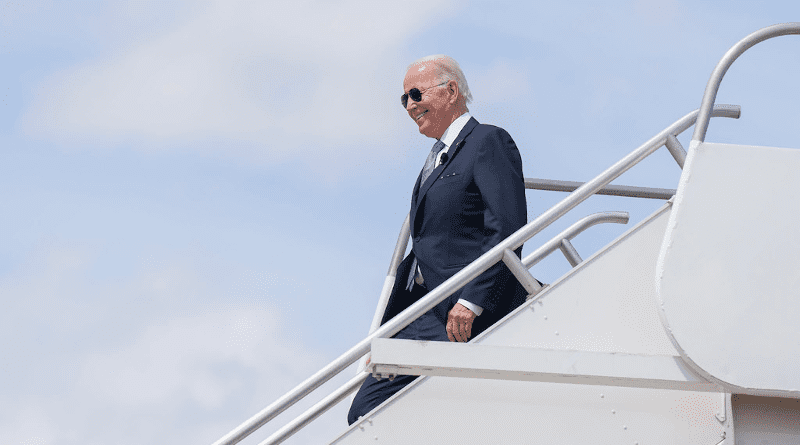Biden’s Trip To Angola To Celebrate Beating China At Its Own Game – OpEd
President Josph Biden will travel to Angola in the first week of December 2024 to celebrate the Lobito Corridor project as a major victory for the United States in the competition for economic control of Africa.
The $2 billion project will refurbish and construct 1,150 miles of railway linking the Angolan port at Lobito to transport copper, cobalt, and other strategic raw materials from mines in Zambia and the Democratic Republic of Congo. It is intended to promote increased production of these minerals—so crucial to modern electronic technology—by making it possible to bring far larger quantities on to the world market to meet the needs of producers throughout the world, including in China.
Although the trip is designed, in part, to meet Biden’s promise to visit the continent during his term in office, it should also be seen as an effort to focus attention on what the administration sees as beating China at its own game. The Lobito Corridor project will have far more impact on Africa’s future economic development than all projects built by the Chinese Belt and Road initiative combined. It demonstrates not only that America can compete with China—and win—but also demonstrates the Biden administration’s commitment to countering China’s growing influence and activities in Africa.
As Marine General Michael Langley, Commander of the US Africa Command, said when he appeared before the House Armed Services Committee on 21 March 2024, “the Lobito Corridor is going to be a rail line extended that is counter to the Belt and Road initiative, that is counter to mining concessions, or a supply chain that China is trying to push forward. So, I think we’re doing all the right things, that we need to do more, whether it’s investments in [President Trump’s] Prosper Africa holistically, all the other activities that we bring together a whole of government that pushes our partners to lead it and us enable them across a whole of government as an answer to what the false offerings or the unstable offerings that China is doing through a socio-economic coercive manner.”
Indeed, the Lobito Corridor project should be seen as the second “Marshall Plan” that many Africa specialists have proposed for decades. The railway that links the Zambian Copperbelt to Luanda, and the Kariba Dam hydro-electric power project that supplies the Copperbelt and central Africa with most of its electricity was actually constructed by the United States in the 1950 as part of the original “Marshall Plan” for Britain, which ruled central Africa at the time.
And an objective appraisal of China’s Belt and Road initiative reveals a mixed picture over the past decade. While Chinese President Xi once spoke of offering Africa an alternative to the IMF and other American-led financial institutions, many projects that were originally planned have been abandoned and Chinese officials have been instructed to scale back plans for future projects. The Lobito Corridor project, in contrast, has been fully funded and would transform the region’s role in the global economy. Or it could, if the Democratic Republic of Congo could conduct democratic elections, establish government authority over the eastern part of the country, and resolve its conflicts with Rwanda and Uganda. And that’s a big if.

